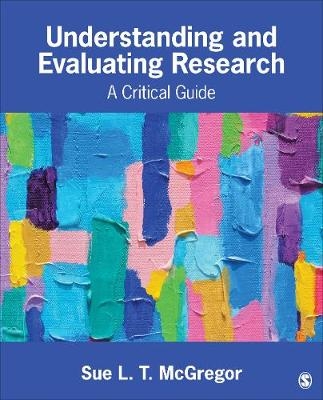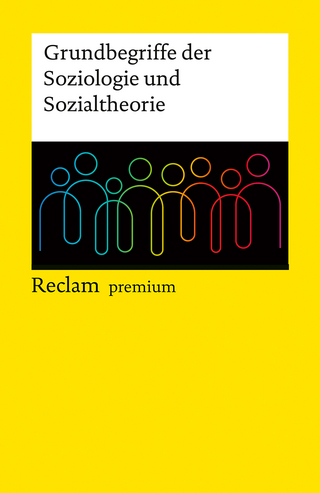
Understanding and Evaluating Research
SAGE Publications Inc (Verlag)
978-1-5063-5095-0 (ISBN)
Dr. Sue L. T. McGregor (Professor Emerita) is a Canadian home economist (more than 45 years) recently retired from Mount Saint Vincent University, Halifax Nova Scotia. She was one of the lead architects for the interuniversity doctoral program in educational studies, serving as its inaugural Coordinator. She has a keen interest in home economics philosophy, transdisciplinarity, and consumer studies. She is a TheAtlas Fellow (transdisciplinarity), a Docent in Home Economics at the University of Helsinki, the Marjorie M. Brown Distinguished Professor (home economics leadership), the Karpatkin International Consumer Fellow, and she received the TOPACE International Award (Berlin) for distinguished international consumer scholar. Affiliated with 20 professional journals, she has 160 peer-reviewed publications, 60 book chapters, 10 monographs, and four books. She has delivered 27 keynotes and invited talks in 12 countries. Dr. McGregor is Principal Consultant for The McGregor Consulting Group (1991) http://www.consultmcgregor.com, sue.mcgregor@msvu.ca
PART I • INTRODUCTION
Chapter 1 • Critical Research Literacy
Chapter Summary
Review and Discussion Questions
PART II • PHILOSOPHICAL AND THEORETICAL ASPECTS OF RESEARCH
Chapter 2 • Research Methodologies
Empirical, Interpretive, and Critical Methodologies
Quantitative, Qualitative, and Mixed Methods Methodologies
Research Methodology and Research Question Alignment
Writing the Research Methodology Section of a Paper
Chapter Summary
Review and Discussion Questions
Chapter 3 • Conceptual Frameworks, Theories, and Models
Introduction
Role of Theory in Research Inquiries
Concepts and Constructs
Conceptual Frameworks
Theories
Writing the Theoretical or Conceptual Framework Section of a Paper
Models
Chapter Summary
Review and Discussion Questions
PART III • ORIENTING AND SUPPORTIVE ELEMENTS OF RESEARCH
Chapter 4 • Orienting and Supportive Elements of a Journal Article
Introduction
Authors′ Names, Credentials, and Affiliations
Article Title
Abstracts
Keywords
References
Footnotes and Endnotes
Appendices
Acknowledgements
Biographies
Chapter Summary
Review and Discussion Questions
Chapter 5 • Peer-Reviewed Journals
Introduction
Journal Editor, Editorial Boards, and Facilitating Editors
Peer Review Process
Acceptance Rates
Journal Impact Factors
Journal Title
Journal Volume, Issue, and Pagination
Year of Publication and Article Placement in Issue
Special Topic and Themed Issues
Electronic Journals
Open Access Journals
Chapter Summary
Review and Discussion Questions
PART IV • RESEARCH JUSTIFICATIONS, AUGMENTATION, AND RATIONALES
Chapter 6 • Introduction and Research Questions
Introduction
Etymological Roots
Opening Sentences and Opening Points in an Introduction
Six Approaches to Writing Introductions
Delimitations
Chapter Summary
Review and Discussion Questions
Chapter 7 • Literature Review
Introduction
Etymology and Definition of a Literature Review
Purposes of a Literature Review
When to Conduct a Literature Review
Conducting a Literature Search
Critically Reviewing the Collection of Literature
Writing the Literature Review Section
Characteristics of a Good Literature Review
Technical Elements of Writing Effective Literature Review Sections
Chapter Summary
Review and Discussion Questions
PART V • RESEARCH DESIGN AND RESEARCH METHODS
Chapter 8 • Overview of Research Design and Methods
Introduction
Etymology and Definition of Methods and Research Design
Research Design
Methods
Integrity of Research Designs
Technical Aspects of Reporting Methods
Chapter Summary
Review and Discussion Questions
Chapter 9 • Reporting Qualitative Research Methods
Introduction
Qualitative Emergent Research Designs
Types of Qualitative Research Designs
Methods Appropriate for Qualitative Research
Qualitative Site Selection and Access
Qualitative Sampling
Researcher′s Role
Qualitative Ethical Considerations
Qualitative Data Collection
Qualitative Data Management, Security, and Storage
Integrity of Qualitative Research Designs
Qualitative Data Analysis
Qualitative Study Limitations
Chapter Summary
Review and Discussion Questions
Chapter 10 • Reporting Quantitative Methods and Mixed Methods Research
Introduction
Quantitative Research Design
Mixed Methods Research Design
Chapter Summary
Review and Discussion Questions
PART VI • RESULTS AND FINDINGS
Chapter 11 • Statistical Literacy and Conventions
Introduction
History of Statistics
Laws of Probability and Chance
Statistical Literacy
Types of Statistical Data
Statistical Variables
Experimental and Nonexperimental Research
Chapter Summary
Review and Discussion Questions
Chapter 12 • Descriptive and Inferential Statistics
Introduction
Basic Differences Between Descriptive and Inferential Statistics
Descriptive Statistics
Association and Causation
Inferential Statistics
Conclusion
Chapter Summary
Review and Discussion Questions
Chapter 13 • Results and Findings
Introduction
Distinguishing Between Results and Findings
Purpose of Results or Findings Section
Reporting Qualitative Findings
Reporting Quantitative Results
Reporting Mixed Methods Results and Findings
Conclusions: Unique Challenges of these Approaches
Chapter Summary
Review and Discussion Questions
PART VII • DISCUSSION, CONCLUSIONS, AND RECOMMENDATIONS
Chapter 14 • Discussion
Introduction
Discussion Defined
Discussion Relative to Results and Findings
Purpose of Discussion
Discussion and the Concept of Significance
Fundamental Questions to Address in the Discussion
Limitations
Organizing the Discussion Section
Staying Focused and On Topic
Ensuring Strong and Responsible Discussions
Technical Strategies for Discussion Sections
Chapter Summary
Review and Discussion Questions
Chapter 15 • Conclusions
Introduction
Conclusion Defined
Relating Conclusions to Discussion and Summaries
Purpose of Conclusions
Closing Strategies for Effective Conclusions
Things to Avoid in the Conclusions Section
Technical Strategies for Writing Effective Conclusions
Chapter Summary
Review and Discussion Questions
Chapter 16 • Recommendations
Introduction
Recommend Defined
Logical Connections Informing Recommendations
Research Versus Nonresearch Recommendations
Audiences for Recommendations
Characteristics of Effective Recommendations
Language for Communicating Recommendations
Crafting and Organizing Effective Recommendations
Technical Strategies for Presenting Recommendations
Chapter Summary
Review and Discussion Questions
PART VIII • ARGUMENTATIVE ESSAYS AND THEORETICAL PAPERS
Chapter 17 • Argumentative Essays: Position, Discussion, and Think-Piece Papers
Introduction
Argumentative Essays
Comparing Position, Discussion, and Think-Piece Papers
Format for Argumentative Papers
Persuasive Writing and Rhetorical Appeals
Deductive and Inductive Argumentation
Chapter 18 • Conceptual and Theoretical Papers
| Erscheinungsdatum | 31.01.2018 |
|---|---|
| Verlagsort | Thousand Oaks |
| Sprache | englisch |
| Maße | 187 x 231 mm |
| Gewicht | 1060 g |
| Themenwelt | Sozialwissenschaften ► Soziologie ► Allgemeines / Lexika |
| Sozialwissenschaften ► Soziologie ► Empirische Sozialforschung | |
| ISBN-10 | 1-5063-5095-X / 150635095X |
| ISBN-13 | 978-1-5063-5095-0 / 9781506350950 |
| Zustand | Neuware |
| Haben Sie eine Frage zum Produkt? |
aus dem Bereich


